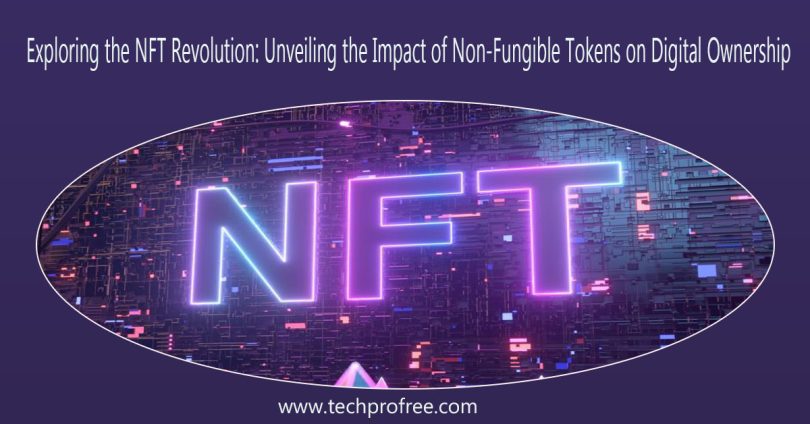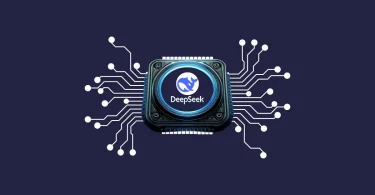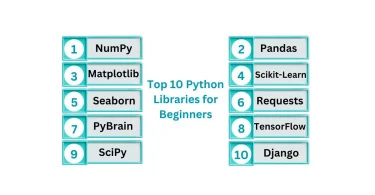The idea of ownership has gained new significance in the age of digitization. NFTs, which include everything from art and music to video games and films, have caught the interest of both investors and aficionados.
In this article, we’ll explore the world of NFTs, their possible effects across many industries, and any obstacles they might run into along the way.
Significance and Uniqueness of Non-Fungible Tokens (NFTs):
Let’s first clarify the meaning of NFTs before diving into their complexities. NFTs manifest as blockchain-based digital assets, with Ethereum standing out as the most widely used platform for this use. These tokens have individuality and cannot be traded interchangeably, in contrast to uniform cryptocurrencies like Bitcoin or Ethereum which can be swapped one-to-one. Each NFT carries a distinctive essence and a set of attributes that render it unparalleled.
The concept of fungibility pertains to an asset’s capacity to be traded for an equivalent unit of value. As an illustration, a dollar bill embodies fungibility since it can be substituted for another without any loss in value. A non-fungible object, such as a work of art, on the other hand, has unique qualities that make it irreplaceable and valuable by nature.
Revolutionizing Digital Art: NFTs as a Gateway to Uniqueness, Ownership and Prosperity.
NFTs have attracted a lot of attention in the field of digital art, giving artists an innovative means to promote and make money from their works. Because digital information can be reproduced and circulated so easily, traditional digital art has a difficult time creating a sense of uniqueness and authenticity. However, NFTs overcome this difficulty by offering verifiable proof of ownership and individuality.
Modern digital artists are now able to issue NFTs of their works, giving them a distinctive token identification that denotes ownership. These NFTs can subsequently be bought, sold and traded on a variety of internet marketplaces, supporting a thriving market for digital art. For artists, the option to sell digital art in limited editions or as a single piece has opened up a world of opportunities, enabling them to connect with a global audience and earn a fair wage for their work.
Exploring the Versatility of NFTs Beyond Digital Art:
While digital art has taken the lead in the NFT revolution, the spectrum of possibilities for NFT applications extends far beyond. NFTs possess the ability to symbolize ownership over a diverse array of items, spanning both the physical and digital realms.
Let’s set forth on an exploration to uncover the captivating vistas that NFTs reveal.
Exploring the Potential of NFTs in the Real Estate Landscape:
Real estate and property possession is a domain ripe for substantial transformation through NFTs (Non-Fungible Tokens). Envision a future where acquiring a home or land becomes as effortless as acquiring an NFT. These innovative tokens hold the potential to establish a secure and overt means of verifying property ownership, obviating the necessity for intricate legal rituals and extensive paperwork. Such a shift could potentially streamline the purchasing and selling process, rendering it more efficient and accessible to a broader spectrum of individuals.
Transforming Collectibles: NFTs Reshaping Digital Ownership and Trading.
Over time, collectibles have had a particular place in the hearts of enthusiasts and collectors. These things frequently have sentimental significance and can increase in value over time, from trading cards to rare coins. NFTs offer a fresh method for gathering and exchanging physical and digital collectibles by providing a standout digital certificate of ownership and authenticity. NFTs offer collectors the opportunity to exhibit and trade their cherished items within the digital realm, encompassing everything from scarce sports memorabilia to exclusive comic book editions.
NFTs and Intellectual Property: Reinventing Protection and Profit in the Digital Age.
NFTs have the ability to completely change how we protect and profit from intellectual property. In this progressively digitized world, artists and creators hold the power to trend NFTs that symbolize ownership of their imaginative endeavors, spanning realms such as music, films, or literary works. These NFTs establish an indelible and unalterable ledger of their rights. This evolution paves the way for novel prospects in licensing, royalties and avenues of income, assuring just compensation for the creators’ artistic contributions.
NFTs in Gaming: Unleashing True Ownership and Economic Potential for Virtual Assets.
The concept of virtual assets is well-known in the game industry. Players can collect and exchange in-game items as well as cash in a variety of games. The pricing of these assets is typically under the control of the game producers, but they are frequently restricted to a single game or platform. NFTs possess the capacity to disrupt this conventional outlook by granting players genuine ownership of their virtual possessions. Imagine having the option to purchase, sell and trade in-game items across different platforms and games while knowing that your ownership is supported by blockchain technology.
Exploring Challenges and Risks of Real NFTs for Consumers, Investors and Businesses:
While the limelight shines brightly on Non-Fungible Tokens (NFTs), their domain remains a realm yet to be fully explored. Challenges, both novel and concerning, have emerged alongside this innovative technology, underscoring the potential risks for a wide array of stakeholders, including consumers, investors, and businesses.
- NFTs and Ownership Rights: Challenges and Authenticity Concerns.
The difficult issue of determining ownership rights prior to completing a purchase is a significant challenge associated with NFTs. Existing digital artwork has occasionally been illegally purchased, transformed into NFTs and sold without the required permission. This raises issues with determining the legitimacy of ownership and the validity of digital assets, which are made more difficult by discussions about ownership across various NFT platforms.
- Securing NFTs: Addressing Privacy and Cybersecurity Challenge.
The appeal of NFT platforms has drawn cybercriminals who want to steal digital assets or use user data for their own purposes. The storage of off-chain data has been found to be vulnerable and user identities may have been revealed according to reports of attacks on NFT platforms and marketplaces. As a result, protecting the confidentiality and security of NFT transactions and systems is a subject that requires careful investigation.
- NFT Risks: Protecting Against Scams and Deceptive Practices.
The growth of NFTs resulted in an increase in dishonest tactics and fraudulent behavior. Vendors may disseminate false or erroneous information, tricking customers into buying fake or stolen digital assets. Because blockchain-based transactions are irreversible, the victims of these frauds have limited options for recovering their losses.
- NFTs for Tangible Assets: Legal Complexities and Valuation Dilemmas.
There are legal consequences and uncertainties when NFTs are used to protect actual assets like precious metals or real estate. In-depth analysis is required to navigate the complex technological and legal issues involved in connecting physical assets with their digital counterparts. Ownership, legal ramifications and the value of these NFTs are all significant issues.
- Understanding NFT Price Volatility: Addressing Risks and Safeguarding Stability.
NFTs participate in international commerce and exhibit high volatility, a feature that entails dangers for the stability of the financial system. Understanding the factors that contribute to the extreme volatility of NFT valuations, such as market manipulation, dishonesty, state of mind, and uncertainty, is crucial for reducing risks for investors, businesses, and consumers alike.
- NFTs: Addressing Taxation and Money Laundering Challenges.
A major cause of concern is the possible abuse of NFTs for tax evasion and money laundering activities. Given that the acquisition, exchange, sale, and purchase of NFTs include legal and financial duties, a thorough investigation of the prevalence and effects of these issues within the NFT environment is recommended.
- Challenges in NFT Data Accessibility: Durability and Dependency on External Systems.
Some NFT ecosystems store information about digital assets in external data storage systems. There are questions about the longevity of connected URLs and the possible effects if the platforms or underlying systems cease responding.
- Crossing NFT Chains: Navigating the Challenge of Interoperability.
A key element in allowing the exchange and trade of NFTs is enabling seamless communication and interoperability among various NFT platforms. To achieve such interoperability, however, difficult technical and administrative barriers must be overcome, leading to the need for extensive research and development.
- Improving NFT Transaction User Experience: Mitigating Delays, Fees and Frustrations:
Some customers have expressed dissatisfaction with the effectiveness of NFT transactions, citing problems such as delayed confirmation of NFT trades, high transaction fees and consequent mental stress. It appears that addressing these issues and improving user experience is an area suitable for scientific investigation.
- NFTs and the Environment: Investigating Energy Consumption and Ecological Impact.
The growing use of NFTs prompts ecological concerns about their sustainability and potential effects on the environment. To reduce their environmental impact, NFT-related energy usage, particularly the processing of smart contracts, needs to be carefully monitored.
Summing up:
The development of Non-Fungible Tokens (NFTs) has altered the definition of ownership in the ever-changing world of digitization. The way we purchase, trade and own various types of digital information has been revolutionized by these unique digital assets, piquing the interest of both investors and aficionados. NFTs have surpassed conventional bounds, stretching industries as diverse as art, music, gaming and real estate. As we keep going into the world of NFTs, we’ve examined their significant relevance and ability to provide authentic and indisputable proof of ownership. NFTs are positioned to transform real estate transactions, empower collectors, protect intellectual property rights, transform gaming economies and link physical assets with digital representation, so the potential application goes far beyond the realm of the arts. This journey of transformation is not without difficulties, though. Issues related to ownership, security, fraud, legal complexities, price volatility, taxation, data accessibility, cross-chain interoperability, transaction user experience and environmental impact demand careful consideration. While NFTs hold immense promise, their path forward requires a balanced understanding of their potential and pitfalls to navigate this evolving digital landscape effectively.




Leave a Comment